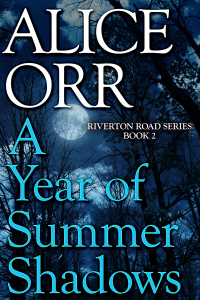Write Whenever Wherever. A day in the life of a writer can be a frenzied time. There are these things called deadlines. Do you know why they are called deadlines? Because guess what an author will be if she misses one.
How Can We Possibly Get Everything Done? Marketing. Social media. Keeping up with email. And, oh yes, I almost forgot. Writing. As publishing writers we are concerned about productivity on the page. How many words must you write today to be on track toward your deadline? Whether that deadline is set by an agent or an editor or yourself.
This is Not a New Problem for Me. When I first became a book editor – back in a previous incarnation – I was still under contract with my own publisher and had a tight deadline to fulfill. The publisher I worked for and the publisher I wrote for were pulling me hard in two different directions. I was in the middle about to lose my mind.

Then Something Wonderful Happened. I was speaking on a conference panel with Nora Roberts. Always an amazing experience. She was the queen of productivity then just like she is the queen of productivity now. So I had a wild thought. Maybe she could help me with my own productivity dilemma.
I Found Nora in the Hotel Lobby and Explained My Predicament. She settled into a comfortable sofa and invited me to do the same. This was our first meeting. She did not know me but she listened patiently all the same. Then she gave me the simple yet profound advice that carried me through the deadline I was facing then and many more since.

“You have to Learn to Write Wherever You Are,” she said. I had always confined my writing to orderly places and set blocks of time. Nora freed me from that. I also always carried 5×8 inch index cards with me everywhere. From that moment in the hotel lobby on I used them for writing – any time any place I had minutes to spare I would Write Whenever Wherever.
Modes of Transportation became Favorite Writing Spaces. Subway cars. Taxis. Airplanes. I hunched over my index cards and wrote furiously. Between subway stops. On my way to meetings. In airport lounges. Nobody ever interrupted me. Probably because I looked a bit intense and maybe a bit insane too. I didn’t care. I needed to make my deadlines. And I did.

I Never Forgot Nora Roberts’ Wise Advice. I write a lot online now. Magazine articles and columns. These blog posts. They all have deadlines and my days are still packed with other obligations as well. Fortunately I have this author paragon’s voice to remind me. “You have to write wherever you are.” I pass my version of that voice on to you. At deadline time or any time. Write Whenever Wherever.
Alice Orr Says – You Possess Storytelling Magic. Keep on Writing Whatever May Occur. https://www.aliceorrbooks.com.
Ask Alice Your Crucial Questions. What are you most eager to know – in your writing work and in your writer’s life? Ask your question in the Comments section at the end of this post.
Alice Orr has published 14 novels, 3 novellas and a memoir so far. She wrote her nonfiction book No More Rejections: 50 Secrets to Writing a Manuscript that Sells as a gift to the writers’ community she loves. Her novel – A Year of Summer Shadows – Riverton Road Romantic Suspense Series Book 2 – is available HERE.

Praise for A Year of Summer Shadows: “Alice keeps you wanting to read faster, then when you finish the last page, you want more.” “Orr’s characters come alive on the page.” “A Year of Summer Shadows has moved up to one of my favorite books.”
All of Alice’s Books are HERE.
http://facebook.com/aliceorrwriter/
http://twitter.com/AliceOrrBooks/
http://goodreads.com/aliceorr/
http://pinterest.com/aliceorrwriter/
Yesterday, my wife finished a page-turning novel, and wondered what it was that made her put almost everything else aside to read it. I answered her as best I could with generalities, but you answered it with far more accuracy:
“Making your reader care is the most powerful story hook you could ever create. And the more we care – the more solidly your story hook is set in us.“
Thank you, Alice. I can picture her sitting in her favorite reading chair with that story hook set and her not wanting to let go.
Great advice! A small journal that fits in a purse can be handy too. But I have a boatload of 3×5 cards. 🙂
Hi Kayelle. This post really relates back to the one a couple of posts ago “Summertime and the Writing Ain’t Easy.” There I talked about how we all need to remind ourselves to write everything down or we take the chance of losing precious material. Again, this has to do with the very busy and varied lives we lead. We have so much to do, so much to hold in our minds at one time. Ideas in particular can easily slip off the attention grid and be lost. Sometimes this happens to the very brain brilliance we most want to preserve and keep on hand till later when we need it. The same priniciple applies to finding time to write. The challenge is to fit it all together into a 24/7 format which can get pretty limited and limiting. Grabbing that time to get the actual work, the actual writing, down on paper or wherever, is as crucial as saving our story ideas from oblivion. Whatever vehicle we find comfortable for making that grab happen is okay, or better than okay. That is where writer eccentricity steps in. We fall in love with our writer stuff – my index cards, your notebooks, an app on the phone. Whatever speaks to us at the time and calls out, “Here I am. Place your beautiful words in me. I cannot wait to receive them.” Thus we Keep on Writing Whatever May Occur. Love and Blessings. Alicd
Hi Alice,
Great advice for writers! I sometimes struggled with a full-time teaching job and writing to meet deadlines. I used various ways to write from keeping a notepad in my purse, my desk, and writing when I could to dictating the story into a recording device. With a smart phone it’s easy to use voice to text to write and then transcribe it later into stories. Thanks for the suggestions. Happy writing! Cathy
Hi Cathy. Full-time work beyond our writing lives is a biggie in any author’s life. How do we do both and manage to do both well? In this post I talk about how Nora Roberts shared a piece of fantastic advice with me and helped make my double work life more livable. She was a full-time writer but she had more than one publisher, more than one series to satisfy with story after story after story. Plus she was a familiar face on the writers’ conference circuit, at least at that time. I was on that circuit too, and it made me feel like I had not only a double work life but a triple one. Her suggestion of writing wherever you could whenever you could resonated with me and my personal situation. Other good writing routines may suit other writers more naturally. My point is the time factor is critical because it is the element we multitaskers have way too little of. Filling up those occasional empty minutes with writing was good for me because it became a respite, even an escape, from my other career demands. I could drop into the world of my story and spend some lovely time there, even if the visit to that land was a brief one. In that respect I considered Nora’s advice, and my adoption of it as a practice and habit, a miracle in my writing life. I will be forever grateful for that gift. And I am equally grateful to see a writing friend like you finally able to indulge in her craft more freely and with fewer limitations. Enjoy and Keep on Writing Whatever May Occur, Love and Blessings. Alice
Dear Cathy. You have commented on my blog posts in the past. I invite you to explore my most recent series. It is titled “Oh No I’m a Caregiver – Dementia – Our Cautionary Story.” These posts are of special significance to me. Dementia appears to be a reality destined to assault all of our lives in one way or another eventually. I believe that the story I have to tell – through my initial post and others yet to come at https://www.aliceorrbooks.com – has valuable insights to offer. For this reason, I hope you will read it and pass it on to others so that they might benefit from what I am learning and from those insights.
For example… My husband Jonathan, who has recently been diagnosed with dementia, is actually quite fine at this early stage. He is engaged in lots of cognitively powerful activities. He writes original memoir pieces that are very good and says this is the result of sitting in on so many of my writing workshops over the past forty-five years. He now finds more joy in writing than the drawing and music that were his usual creative pursuits in the past. This is good because, as you know, portraying characters and composing scenes require a deep level of focus and detail concentration which is very beneficial for him. He also loves jigsaw puzzling – the 1500-piece variety. Again much concentration is required plus he has fond memory associations of doing puzzles with his mom when he was a boy. He also reads a lot – challenging books, as well as his favorite New York Times articles. He does regular physical exercise and has also begun gardening at our church which has a large planted space in sore need of attention. Medically, he is taking a basic drug that has disappeared his brain fog for the timebeing. We also have excellent medical professionals on our team and on our side.
Dementia is not like the tv commercials portray it to be. Their purpose is to ramp up fear and sell very expensive, very dangerous drugs. There is a long, gradual period before extreme changes begin, and the aggressiveness these ads emphasize can often be mitigated with simple mood medications that are harmless and affordable.
Meanwhile, there is a real-life story to be told here of real-life experience. I hope you will read and share it. Dementia is a reality for many of us and, unfortunately, promises to be a reality for many more. Truth is our best armor against being cast into despair by the prospect. I hope to add a little to that sustaining truth. Dementia is one of the many ways all of us will evolve from this life into whatever may lay beyond. Passing on is our universal destiny. Some of those passages involve discomfort and unpleasantness. We can perhaps be a bit better prepared if we understand realistically what to expect.
That is what our story – Jonathan’s and mine – is meant to do. Help others – in an honest and caring fashion – to be prepared. Love and Blessings. Alice
A reviewer said about your work that your characters really come alive. I want the same thing for my children’s book characters. What secrets are you willing to reveal?
Hi Bob. Thank you for passing on those generous words. I have devoted a great deal of thought and many many hours of teaching to helping other writers bring their characters to life on the page. I do indeed have advice to share on that subject, and I will do so in my next post. The challenge to me now is to ponder over just which of my numerous characterization lessons to share. What is the core practice for achieving that goal? I think I know which way I will go but you will have to wait till my next post to find out what I decide. Meanwhile, thank you very much for making such a rich topic suggestion. Characterization has always been the central focus of my presentations to writers who wish to practice their craft more effectively and imaginatively. As I said, I will try to strike a chord at the center of that symphony when I next write here. Keep on Writing Whatever May Occur. Blessings. Alice